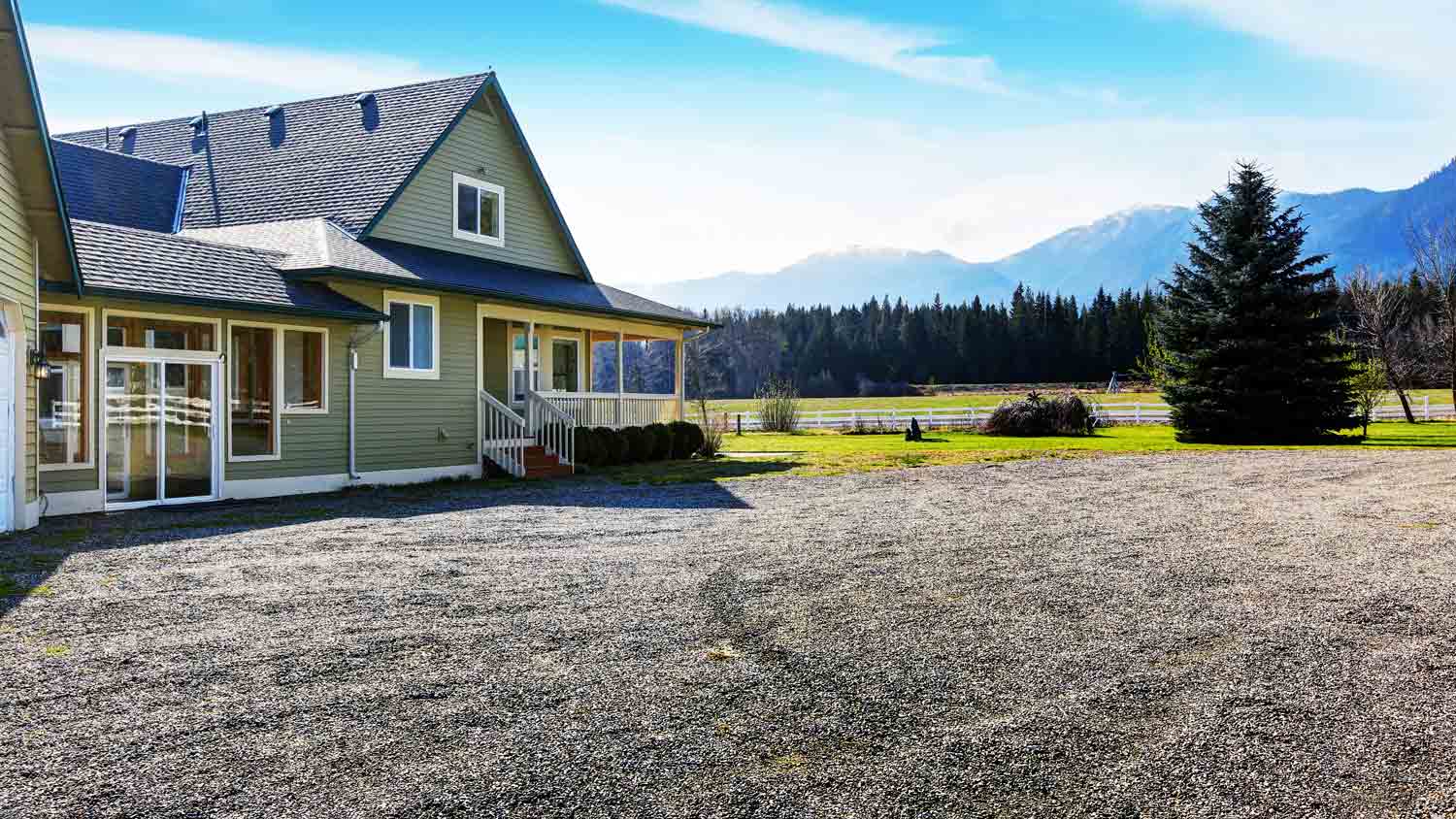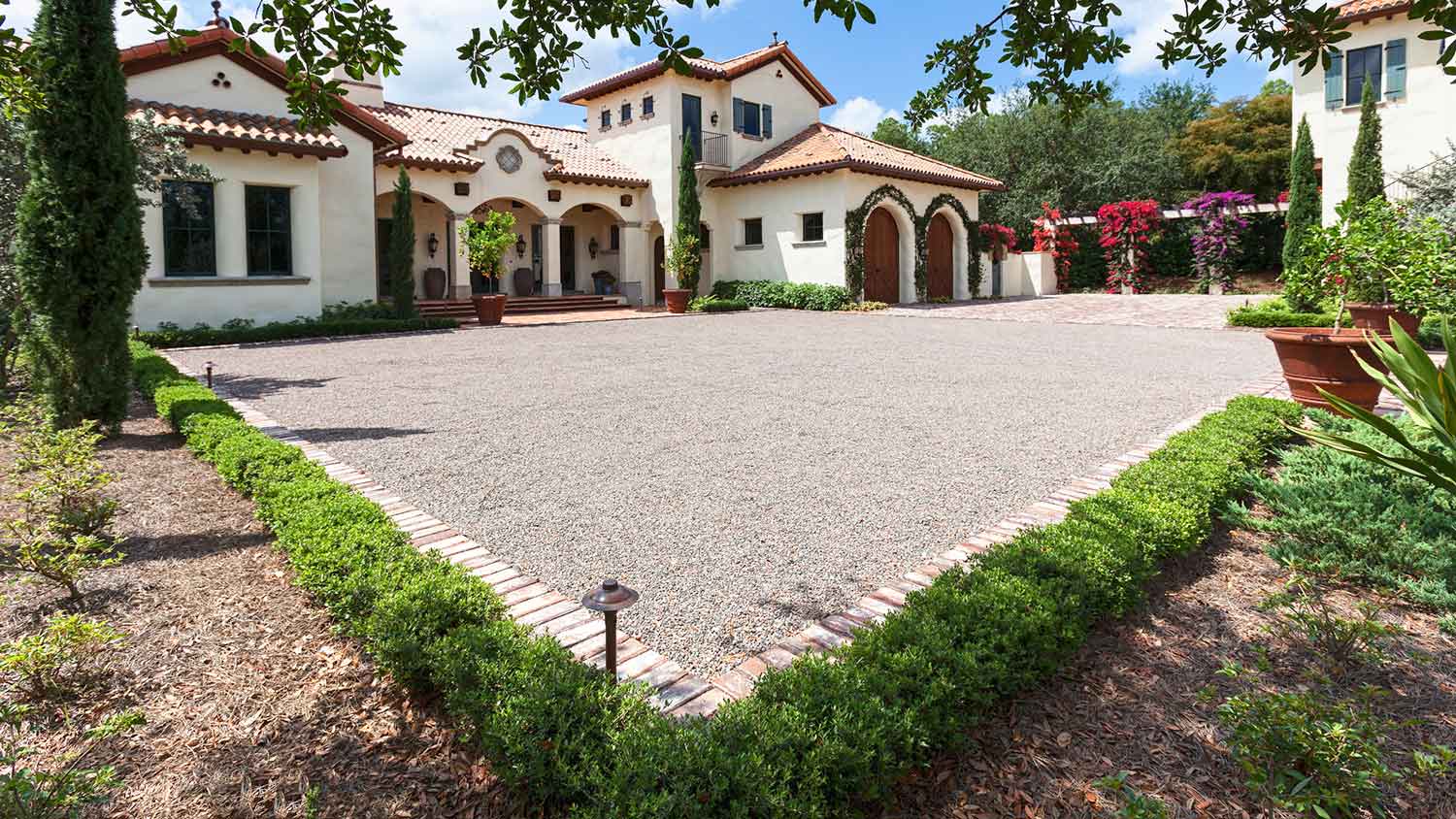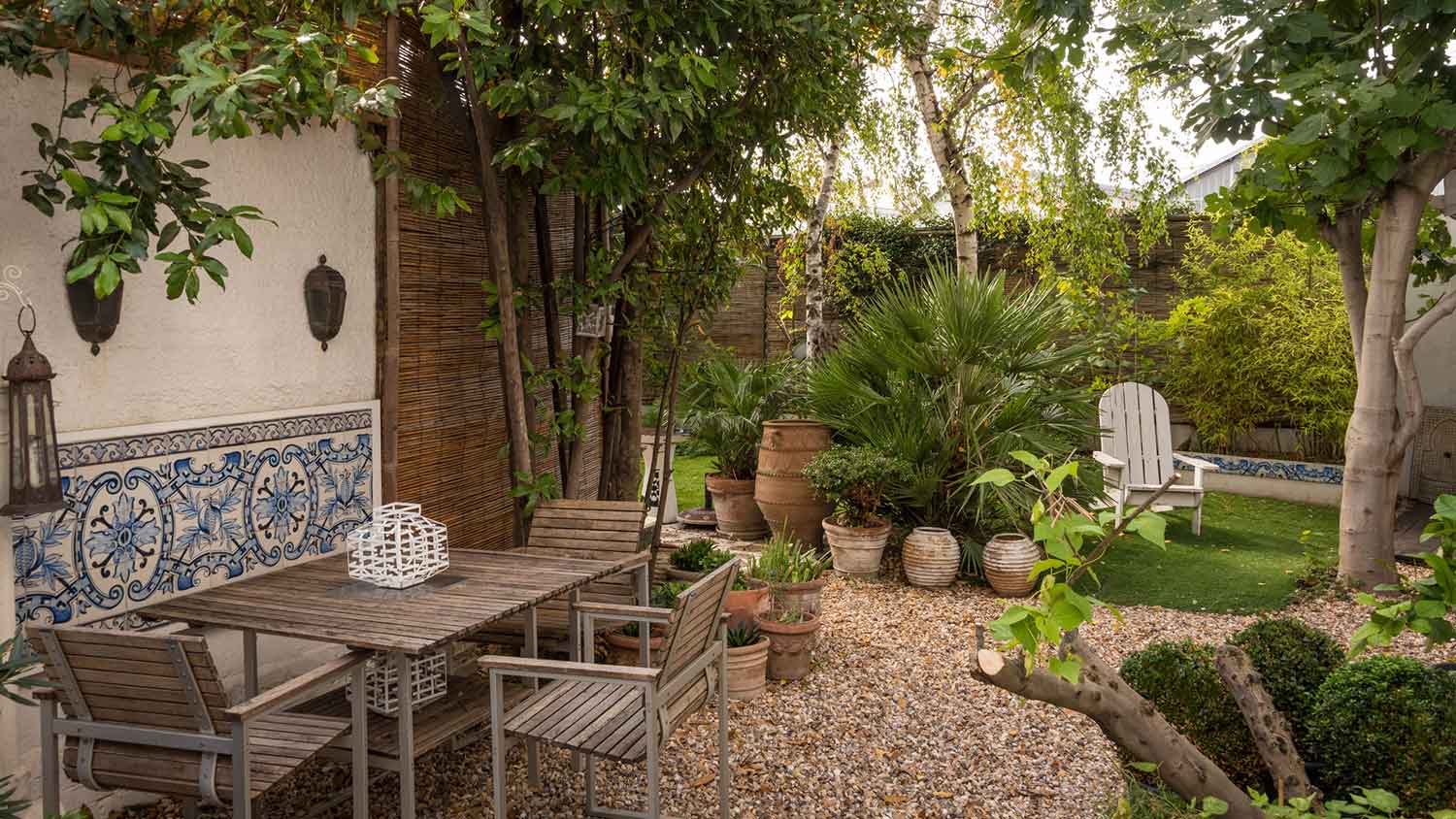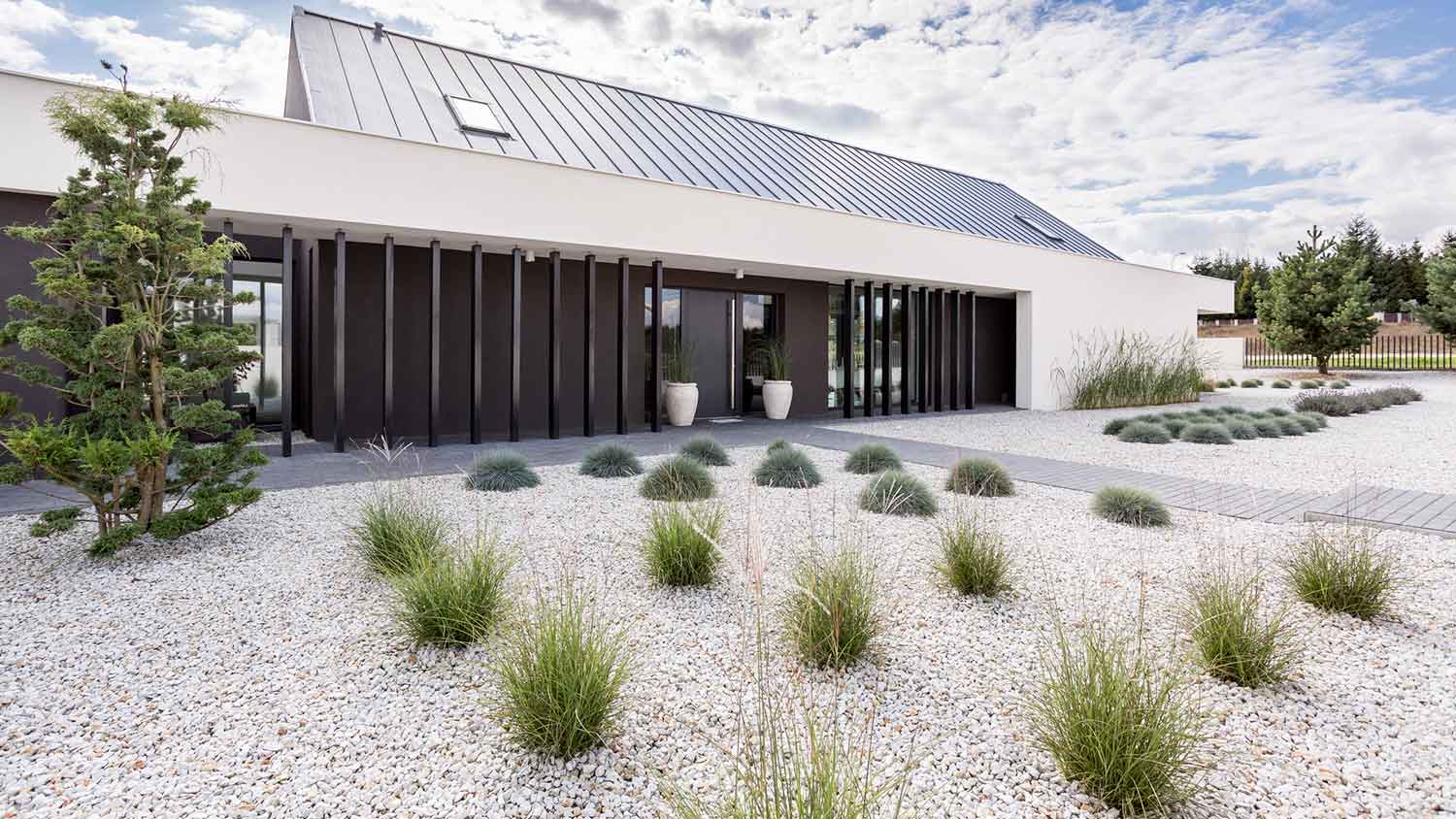
Discover the average gravel driveway cost, including price ranges, installation factors, and tips to help you budget for your new gravel driveway.
A gravel pad for shed costs $1,100 to $1,700 on average, depending on pad size, site prep, and labor


Gravel pad for shed costs range from $4 to $10 per square foot, depending on pad size, and site preparation.
Gravel pads for sheds provide a stable, well-drained base for sheds.
Professional installation ensures proper grading and drainage, extending shed life and preventing foundation issues.
Optional features like borders or weed barriers can increase costs but provide aesthetic and functional benefits.
This article was created using automation technology and thoroughly fact-checked and edited by an Angi Editor in accordance with our AI policy.
Gravel pad for shed cost ranges from $1,100 to $1,700 on average, depending on the size and complexity of the project. Homeowners may pay as little as $800 for a small, basic pad or up to $2,400 for a large, professionally installed foundation. Expect to pay $4 to $10 per square foot, including materials and labor.
Installing a gravel pad is a smart investment, providing a solid, long-lasting foundation for your shed. This guide will help you understand what impacts the cost, what to expect, and how to make the most of your budget.

The size of your gravel pad is the single biggest factor in determining your total project cost, and choosing a pad size that’s just right for your shed and intended use is the best way to control costs and ensure a sturdy foundation. The square footage of your gravel pad directly affects the total price, since both material and labor costs increase with size.
Most shed pads are built slightly larger than the shed itself—extending 12 to 24 inches beyond the shed walls on each side—to provide stability and protect against water runoff. Larger pads are needed for double-door sheds, custom shapes, or if you want extra space for walkways or storage.
Common pad sizes include:
8-by-10 feet
10-by-12 feet
12-by-20 feet
Standard gravel pad thickness is four, six, or eight inches. Thicker pads are recommended for heavier sheds or poor soil conditions, since they provide more stability and drainage. For most residential sheds, a four to six-inch pad is sufficient. However, if you’re storing heavy equipment or building on soft ground, a thicker base is worth the added investment to prevent settling or shifting. Increasing the pad depth means more gravel and more labor, which can raise your total cost by $1 to $4 per square foot.
| Pad Size (ft.) | Square Footage | Average Cost |
|---|---|---|
| 8x10 | 80 | $320–$800 |
| 10x12 | 120 | $480–$1,200 |
| 12x16 | 192 | $770–$1,920 |
| 12x20 | 240 | $960–$2,400 |
Several factors beyond size and thickness will influence your final gravel pad for shed cost. Understanding these variables can help you plan and budget effectively.
Most gravel shed pads are installed by landscapers, general contractors, or shed installation specialists. Gravel installation pros charge by the hour, from $50 to $100 per hour, or by area, ranging from $3 to $8 per square foot. For small projects, minimum service fees may apply, which can make tiny pads expensive per square foot.
Labor costs vary by region, with higher prices in urban or high-demand areas. The job includes site preparation, excavation, grading, gravel delivery, compaction, and installation of any borders or weed barriers. Challenging sites—such as those with slopes, difficult access, or tree roots—require extra time and effort, increasing labor fees. Some projects require design or consultation fees, especially for custom pads.
Permits for gravel pad installation are sometimes required, especially if your shed exceeds a certain size or if local regulations treat the pad as a permanent structure. Requirements vary by location and shed footprint. It’s important to clarify who is responsible for obtaining permits—sometimes the contractor will handle this, but in other cases, it’s up to the homeowner. In rare cases, local codes may require inspections, which can add to your total cost.
Adding features like edging or borders helps keep gravel in place and can improve the pad’s appearance. Edging materials include timber, concrete, or plastic, with costs ranging from $15 to $20 per linear foot, including labor. Weed barrier fabric, which prevents plant growth, costs $20 to $60 for a shed pad.
Drainage solutions, such as French drains or extra grading, may be necessary for wet or low-lying sites and can add $200 to $1,000 or more. Decorative finishes or custom shapes will increase both material and labor costs.
Site complexity is a key consideration. Sloped or uneven ground, tree or brush removal, and poor soil conditions all increase the amount of work required. Accessibility for equipment and material delivery can also impact pricing. If old foundations or debris must be removed, expect additional charges for disposal and site restoration.
Beyond installation, there are ongoing and secondary costs associated with a gravel pad for your shed.
Many contractors offer warranties on their work, covering materials and workmanship for one to five years. Extended warranties or guarantees may be available at an extra cost. Warranties can provide peace of mind and protect your investment, especially if issues like settling or drainage problems develop later.
Maintaining your gravel pad involves periodic gravel replenishment. Drainage systems may require occasional maintenance to prevent erosion or settling. Weed control, including replacing landscape fabric, is another ongoing consideration.
Routine maintenance includes raking and leveling the gravel, adding new material as needed, and checking for signs of settling or erosion. Prompt attention to low spots or weed growth will help extend the pad’s lifespan and keep your shed stable.
Sales tax may apply to both materials and installation labor, depending on your state or locality. In some areas, a gravel pad for a shed could be considered a permanent improvement and may affect your property tax assessment. It’s wise to check local regulations before starting your project.
Adding a gravel pad for your shed may not increase homeowner’s insurance premiums. However, it’s a good idea to notify your insurer after installation, especially if the shed stores valuable items. Some policies cover damage to outbuildings and foundations caused by settling, drainage issues, or severe weather—confirm your coverage for peace of mind.
Deciding between DIY and professional installation is a big factor in your overall gravel pad for shed cost. Let’s compare the options.
If you’re handy and have time, installing a gravel pad yourself can save on labor. DIY material costs range from $4 to $10 per square foot. You’ll need tools such as a wheelbarrow, shovel, level, and possibly a rented plate compactor or skid steer.
Expect to spend one to three days on the project, depending on pad size and site conditions. Common DIY mistakes—like poor drainage or an uneven surface—can lead to costly repairs or shed problems down the line. Installation requires basic construction skills, the ability to read a level, and comfort with heavy lifting and equipment. Safety is important—gravel, tools, and machinery can cause injuries if not handled properly.
Hiring a pro costs more upfront. However, you benefit from professional grading, drainage, and compaction, which can prevent future issues and expenses. For large pads, complex sites, steep sites, or challenging soil, hiring a pro is the best option. Professional work often comes with a warranty and liability coverage.
At some point, your gravel pad may need attention. Here’s how to decide between repair and replacement. Common issues include settling, erosion, drainage failure, or weed growth. Minor settling or surface ruts can often be fixed by adding gravel and re-leveling.
Full replacement costs are similar to initial installation and are necessary if there is major settling, ongoing drainage problems, or contaminated gravel. If repair costs approach 50% of replacement, it’s more cost-effective to replace the pad entirely. The age of the pad and quality of the original installation also play a role in your decision.
A solid warranty may cover some repairs, reducing out-of-pocket expenses. A well-installed gravel pad should last 12 to 20 years with routine maintenance, but poor installation or lack of upkeep can shorten its lifespan.
A gravel pad increases your property’s value by providing a stable, long-lasting foundation for sheds and other small structures. Compared to concrete or block foundations, gravel pads offer a strong return on investment due to lower upfront costs and good longevity. They can also make your property more appealing to buyers, especially if the shed is included in the sale.
Gravel pads improve safety by creating a stable, level surface for your shed. Good drainage prevents water damage and keeps your shed accessible year-round. They are adaptable for future upgrades and can be extended or modified as your needs change. A neat, well-installed pad also boosts curb appeal.
Use these strategies to keep your expenses under control for a gravel pad installation:
Obtain multiple quotes from local pros to compare pricing.
Choose standard pad sizes to minimize custom work.
Source gravel locally to reduce delivery fees.
Complete site prep or debris removal yourself if possible.
Opt for basic edging materials over decorative options.
Schedule installation during off-peak seasons for potential discounts.
Maintain the pad regularly to avoid costly repairs.
Home is the most important place on earth, which is why Angi has helped more than 150 million homeowners transform their houses into homes they adore. To help homeowners with their next project, Angi provides readers with the most accurate cost data and upholds strict editorial standards. We extensively research project costs to develop the pricing data you see, so you can make the best decisions for you and your home. We rely on reputable sources, including the U.S. Bureau of Labor Statistics, academic journals, market studies, and interviews with industry experts—all to ensure our prices reflect real-world projects.
Want to help us improve our cost data? Send us a recent project quote to [email protected]. Quotes and personal information will not be shared publicly.
From average costs to expert advice, get all the answers you need to get your job done.

Discover the average gravel driveway cost, including price ranges, installation factors, and tips to help you budget for your new gravel driveway.

Gravel is loose rock that has been naturally eroded and is a popular choice for landscaping or pathways. Learn more about what gravel is used for in this article.

Before you contact a pro to lay gravel or loose fill for your driveway, walkway, or garden, review these gravel installation questions.

This guide on how to lay pea gravel outlines the materials and steps needed to complete this landscaping project on your own.

Pea gravel is a budget-friendly, low-maintenance option for landscaping, pathways, and driveways. Learn about its pros and cons, best uses, and top alternatives to see if it’s the right choice for your project.

Choosing between crushed stone and gravel can impact your landscaping project. Keep reading to compare crushed stone vs. gravel and pick the best one.